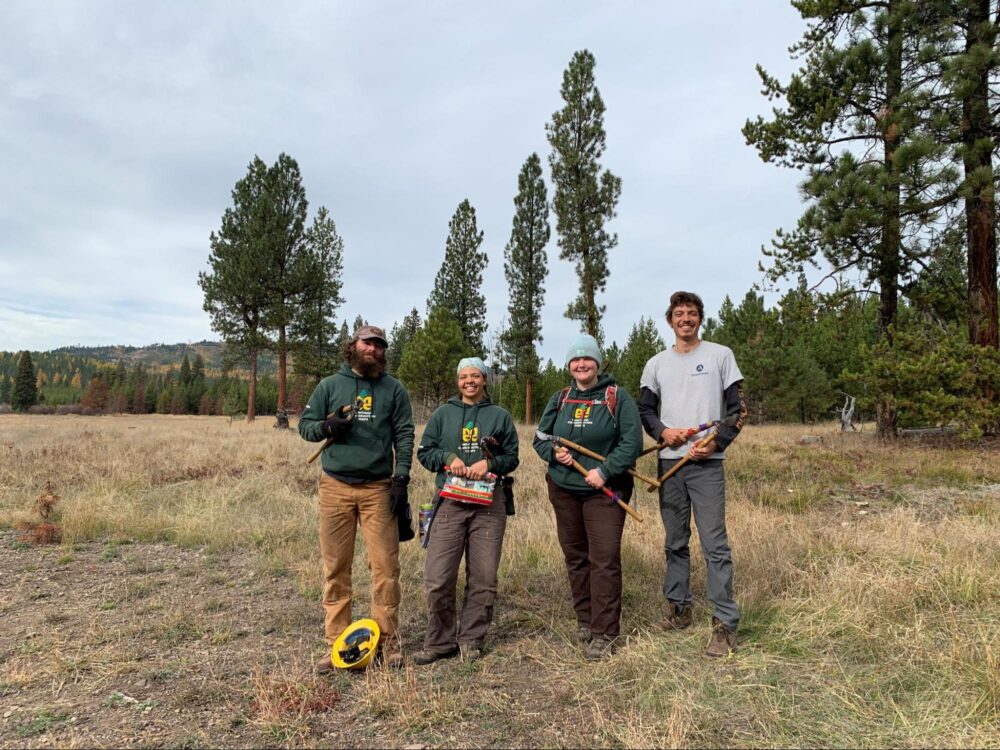We have much more to do and your continued support is needed now more than ever.
Don’t Be a Stranger to the Outdoors
Guest Post By Alyson Weinberg

The question is: how safe are kids really inside?
Children who grow up indoors, as the majority of today’s kids do, are at risk for myriad mental and physical health problems, from learning issues and anxiety to vitamin D deficiencies and myopia. In the last twenty years, when parents began to keep kids indoors for their safety:
- Childhood obesity rates have more than doubled
- The United States has become the largest consumer of ADHD medications in the world
- The use of antidepressants in pediatric patients has risen sharply
Experts agree American kids are out of shape, tuned out and stressed out because they’re missing something essential to their health and development: unstructured time playing outdoors.
When First Lady Michelle Obama launched the “Let’s Move” initiative to tackle childhood obesity through healthy food and activity choices, she recalled walking to school in any kind of weather and playing outside until her mother called her in for dinner. But it’s a different world now– how many children can say the same?
So what are thoughtful, caring parents to do?
You know that playing outdoors is good for kids, but are understandably reticent. Here are some ways to make playing outside something you and your children can feel secure about:
Empower Them!
When kids are taught how to behave in tricky situations they are better prepared if and when they occur. The National Center for Missing and Exploited Children encourages parents to talk to kids from a young age about issues associated with “stranger danger” and offers the following guidelines for children to adopt:
Knowing My Rules for Safety:
- I CHECK FIRST with my parents, guardians, or other trusted adults before going anywhere, helping anyone, accepting anything, or getting into a car.
- I TAKE A FRIEND with me when going places or playing outside.
- I TELL people “NO” if they try to touch me or hurt me. It’s OK for me to stand up for myself.
- I TELL my trusted adult of anything makes me feel sad, scared, or confused.
Visit National Center for Missing and Exploited Children for more resources.
Educate Yourself!
Arm yourself with knowledge so you can make informed decisions about letting your children play outdoors independently. While a large number of children are reported missing each year, the numbers of children who are abducted by a stranger, true “stranger danger,” are much lower.
The U.S. Department of Justice reports 797,500 children younger than 18 were reported missing in one year, resulting in an average of 2,185 children being reported missing each day. 155 of those were victims of a “stereotypical” kidnapping, which involves someone the child does not know or of slight acquaintance, who holds the child overnight, transports the child 50 miles or more, demands ransom, or intends to keep the child permanently.
Join Them—and Bring a Friend!

The adage, “there’s safety in numbers,” is a good one to remember for outdoor play. Text a friend and arrange an impromptu outdoor meet-up with her kids at a local park. Schedule outdoor play dates after school, alternating homes so everyone gets to be a host. Create a neighborhood kid-watching co-op so every mom gets a day off, but the kids get a lot of days in the outdoors.
And don’t forget, outdoor time is good for you too. The best way to help kids reap the enormous benefits of outdoor play while keeping them safe is to join them and Be Out There! NWF wants to give back to American kids what they don’t even know they’ve lost, their connection to the outdoors. You still have that connection–pass it on.
Alyson Weinberg is a Washington DC-based writer specializing in issues concerning children and families. She is an award-winning speech writer, feature writer and communications strategist and the former editor of Spirit, the magazine of the Special Olympics movement. Alyson’s articles and editorials have appeared in national print media, textbooks, and on the web. She and her husband Josh live with their two daughters, Josie and Raina, in Potomac, MD.




















